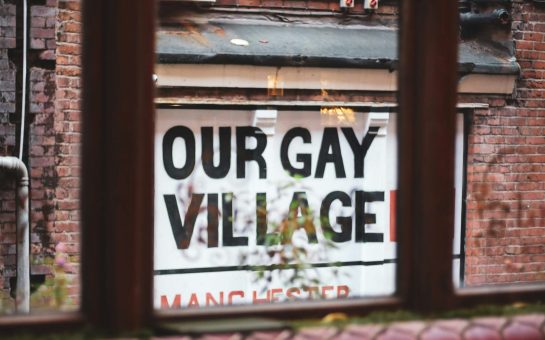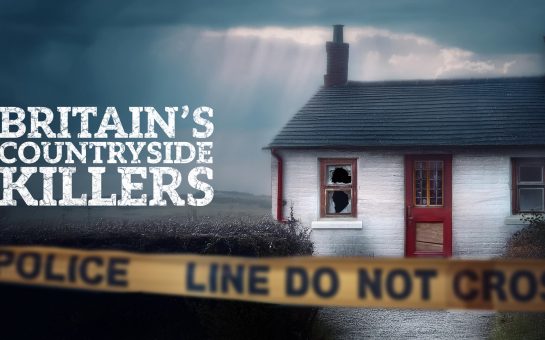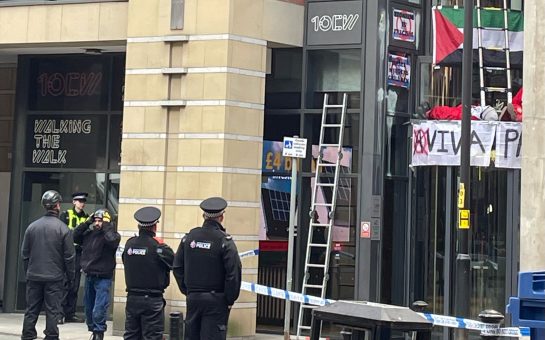A member of Greater Manchester Police’s specialised sexual offences unit has spoken out about the failings of the criminal justice system in rape cases and the life-changing impact of these heinous crimes ahead of his appearance in a BBC documentary.
GMP are to appear on our TV screens this weekend in a new three-part documentary which aims to reach out to victims of rape and sexual abuse.
BBC 2’s The Detectives follows specialist officers in the GMP’s dedicated sexual offences unit responding in cases of rape and sexual assault in Manchester.
MM spoke to Detective Superintendent Jon Chadwick, from GMP’s Public Protection Division, about the low report and conviction rate of sexual offence cases, ahead of his appearance in the documentary
“I think there is a certain amount of acceptance in society that the scale of this problem is very large,” he said.
“I think people need to understand consent better and I would like people to just tell us that they have been raped and we will get them help.
“Being a victim of sexual assault is an extremely traumatic experience and our priority is protecting these people and getting justice for them.
“It would be better once someone has been raped to just get them therapeutic care, to get them counselling and get them medical advice, and leave them alone for a bit to get it straight in their heads.
“But for us, and for the victim, that means a loss of evidence so it is a really difficult balance.”
It is hoped that the documentary will go some way to encourage victims to come forward in the knowledge that their case will be handled sensitively and thoroughly.
“Victims of rape and sexual assault need a very specific type of support from the police and our partner agencies,” DSI Chadwick added.
“These crimes can be life changing, which is one of the reasons why this specialist unit was set up – our officers are experts in their field and deliver a continuous service for as long as victims need it.
“Working alongside partner agencies we work hard to ensure the long-term health and safety of survivors.”
Three years ago less than 800 rapes a year were reported to the GMP – they now get more than 1,800, suggesting that confidence enabling victims to come forward is increasing, however more still needs to be done.
The detective gave his opinion on some of the contributing factors to such high levels of attrition in and the complex issues that often make prosecuting difficult.
A resounding issue is that our criminal justice system is not fit for purpose to tackle the complex issues of consent that are so integral to securing a rape conviction, according to DSI Chadwick.
He hopes that by opening up the process it will confront misguided assumptions about the police, the courtroom, and even about victims themselves.
He said: “The vast majority of rape that we deal with comes down to that issue of consent.
“It is not a question of ‘did the offender have sex with the victim’; it is whether the victim consented.
“More often than not, there are no injuries to the victim, and there are hardly ever eyewitnesses to rape because it happens in places where there are only two people there.”
Ten years ago, it was thought that between just five and 10% of rape cases were reported to the police.
This figure has now risen to between 10-15%, but this is still shockingly low, especially when considering that the majority of these cases will drop out of the system before even reaching trial.
Many rape victims are reluctant to report their ordeal for fear of being treated negatively by both the public and professionals, not being believed, and for fear of reliving the trauma in a courtroom only for the case to be dropped before prosecution.
The length of time the process takes is also prohibitive, meaning that a victim’s initial statement could come under scrutiny for up to a year before a case is concluded.
“To re-examine that account often brings up things that it turns out weren’t accurate – but that account has come from someone that has just been raped, and that is a really difficult thing for people to understand,” DSI Chadwick added.
“If you wait 12 months to go to trial having been assaulted, having had your car stolen, having been burgled, it is not something that is on your mind all that time. With rape it is.
“The longer it goes on, the more likely a victim is to withdraw their support.”
The Detectives gives an insight into the effects that increasing volumes of cases can have on officers, and emphasises just how important these specialist units and these specialist officers are.
It gives unprecedented access to the work of the force’s pioneering Serious Sexual Offences Unit and Major Investigation Team through the investigation, interrogation and trial stages of a sexual abuse case.
DSI Chadwick added: “I think it will probably surprise viewers just how emotionally involved the officers get; the sacrifices they make in their personal lives and how desperate they are to help people.
“The investigations that are followed on the show can be very distressing at times.
“That is the nature of rape and sexual assault and I hope this film encourages a wider exploration of the societal impact of these horrific crimes.
“If one victim comes forward as a direct result of seeing this documentary then I will consider it a big success.
“We are keen to get the message out there that we have specialist rape response units.
“We want people who are victims of rape to have a better understanding of the officers and the agencies they would be meeting if they report to us, and get rid of any stereotypes.
“I hope this documentary will show how hard officers work to safeguard victims throughout the process and increase the confidence of those who have suffered to speak out, and get the help and support they deserve.”
The first episode of The Detectives will be on BBC2 at 9pm this Sunday May 17, with episode two and three airing the following two nights.
Image courtesy of Alyssa L Miller, with thanks.



